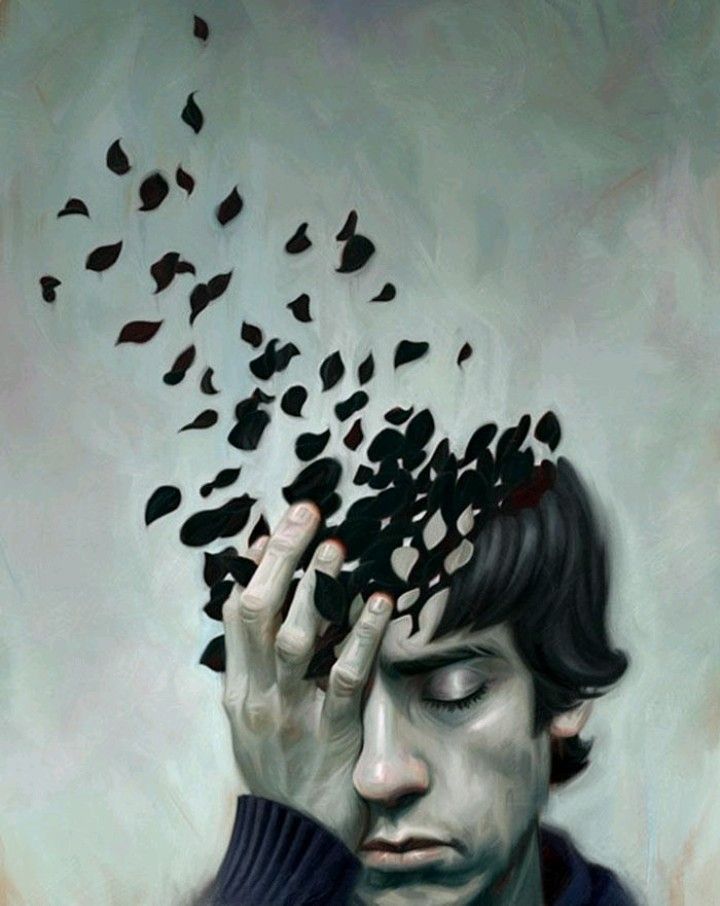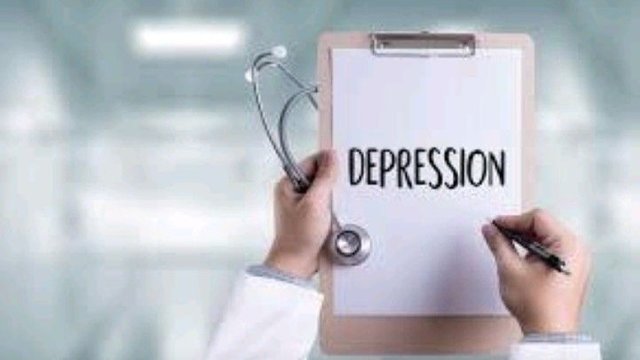Facts about Depression - A Serious Medical Illness
Facts about DEPRESSION

What is Depression?
It’s actually normal to feel sad at some point in life but if this feeling will last for a long period of time and it would lead you to feel worthless, helpless, and hopeless, this could be a sign of depression. But for some typical cases, we can’t easily identify if a person is already suffering from depression.
Depression is a critical medical illness that would influence your feeling, the way you think on everything and how you act physically. It’s a mood disorder. Depression also causes feelings of deep sadness and loss of interest in any activities. It can lead to different types of emotional and physical problems and can affect person’s ability to work on normal activities.
More Facts about Depression:
It’s treatable. There’s an effective way to treat this kind of serious medical condition. Person should start seeing their Doctor or any Mental Health Specialist.
This is common among women than men.
According to the National Alliance on Mental Illness, siblings who have exactly the same genes will both develop depression only about 30 percent of the time.
A complicated relationship between the brain, the central nervous system, and the “good” bacteria in the gut could contribute to depression, according to a review of research published in January 2016 in the World Journal of Gastroenterology. A varied diet that includes probiotics and prebiotics may play a role in managing depression, the researchers theorize.
Depression may link to other health problems. Person who has chronic health condition such as diabetes and heart disease.
There’s also Postpartum type of Depression. A special form of depression that occurs after giving birth. Often called as “Baby Blues”. Symptoms of depression begin in the months following birth, while in some women, it occur while still pregnant.
Depression can be a hidden illness. This is confirmed by Jeremy Coplan, MD, a professor of psychiatry at SUNY Downstate in New York. Some people may display cheerfulness but what’s their inside is the feeling of sadness.
“Exercise improves mood state,”
Dr. Thienhaus says. Exercise helps stimulate natural compounds in the body that can make you feel better. Aim for at least 30 minutes of physical activity most days.
“We typically recommend that people with depression exercise, develop a healthy diet, and go to bed at a regular time.”
The World Health Organization considers depression to be a leading cause of disability worldwide.
“People routinely say that depression is the worst thing that’s happened to them,” Coplan says. “And the reason that’s offered is that their brains don’t work properly. They can’t make decisions and they aren’t sure of themselves — everything requires huge mental effort.”
Depression affects an estimated one in 15 adults (6.7%) in any given year. And one in six people (16.6%) will experience depression at some time in their life. Depression can strike at any time, but on average, first appears during the late teens to mid-20s.
Ref:
Link: https://www.everydayhealth.com/hs/major-depression-health-well-being/surprising-depression-facts/
Symptoms of Depression

• low appetite
• insomnia and hypersomnia
• fatigue or loss of energy
• feelings of guilt or worthlessness
• loss of interest in any activities previously enjoyed
• suicide thoughts
• abnormal ability to think
• can’t concentrate and make decisions
• Delayed psychomotor skills
• restlessness, pacing up and down
• Depression Is Different From Sadness or Grief/Bereavement
Risk Factors for Depression
• Biochemistry: triggered by poor diet, genetic conditions, blood sugar imbalances, medical illness, hormone imbalance, lack of exercise, medications, drug and alcohol use, and digestive difficulties.
• Genetics: Depression can run in families. For example, if one identical twin has depression, the other has a 70 percent chance of having the illness.
• Personality: People with low self-esteem, who are easily overwhelmed by stress, or who are generally pessimistic appear to be more likely to experience depression.
• Environmental factors: Continuous exposure to violence, neglect, abuse or poverty may make some people more vulnerable to depression.
Ref:
Link: https://www.psychiatry.org/patients-families/depression/what-is-depression
How Is Depression Treated?
A Health professional should conduct a thorough diagnostic evaluation; also includes interview and a physical examination. Blood examination might be done to see if depression is not due to a medical condition like a thyroid problem. Specific evaluation to identify specific symptoms. Medical and family history, cultural factors and environmental factors .
Medication such as Antidepressants. This may produce some improvement within first week to two. If there’s no improvement from the given medication, psychiatrist can alter the dose of medication or add another antidepressant.
Psychotherapy or Talk Therapy is used for treatment of mild depression. For moderate to severe depression, psychotherapy is suggested with antidepressant medications. Cognitive behavioral therapy or CBT is a form of therapy that focuses on the present and problem solving. This has been found to be effective in treating depression. It also helps a person to recognize distorted thinking and then change behaviors and thinking.
Psychotherapy may involve family or couples. This can help them address issues within these close relationships. There’s also a Group therapy that involves people with similar illnesses.
Treatment can take a few weeks or much longer, depending on the severity. In many cases, significant improvement can be made in 10 to 15 sessions.
Electroconvulsive Therapy (ECT) is also a type of medical treatment for depression but commonly used for patients with severe situation such as bipolar disorder and who have not responded to other treatments. An electrical stimulation can be done on the brain while patient is unconscious and it would take 6 to 12 treatments. ECT has been practiced since the 1940s and it actually resulted of a major improvement on the patient.
Self-help and Coping

Regular exercise is also a big help for a person who suffers depression. It helps creating positive feeling and improve good mood. Enough sleep, eating healthy foods and avoiding alcohol can also help reduce symptoms of depression.
Once again, Depression is a serious medical illness. It can be treated right away. It’s a mental illness that needs proper diagnosis, full attention, medication and complete treatment.
References:
https://www.psychiatry.org/patients-families/depression/what-is-depression
http://mentalhealthdaily.com/2014/07/23/15-common-causes-of-suicide-why-do-people-kill-themselves/
https://www.betterhealth.vic.gov.au/health/conditionsandtreatments/depression
Depression: Tests, symptoms, causes, and treatment
Depression: Tests, symptoms, causes, and treatment
What are the signs and symptoms of depression, and what causes it? Find out more about what depression involves ...
Images Ref: